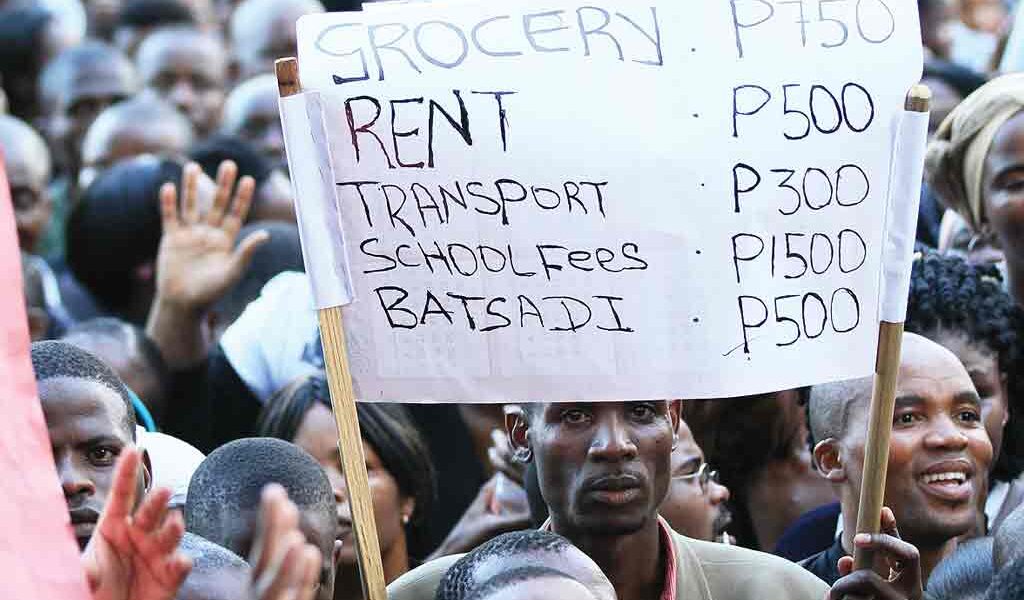“Gov’t is playing dirty tricks to delay negotiations”
KAGO KOMANE
Botswana Federation of Public Sector Trade Unions (BOFEPUSU) Secretary General, Tobokani Rari says public servants should not expect any salary increment from government anytime soon.
He told a media briefing in Gaborone last week that government continues to play dirty tricks that are meant to delay salary negotiations and demoralize workers from unionizing, as salary negotiations have been halted.
“The case that government negotiators are hiding behind to say that they will not sit at a bargaining council before it is resolved is the issue that affects who is supposed to be affected by the outcome of the negotiation process at the bargaining council. The case was heard on the 10th of February 2017 and the judgment was reserved for a later date,” he said.
He explained that because government said that it will not sit at a bargaining table until that case is resolved, it would then mean that the bargaining council will not proceed with salary negotiations up until the judgment of that case is pronounced.
“What this means is that people would not get the increment for 2016, 2017 and 2018. I think that is why even the Minister of finance and Development Planning, Kenneth Matambo did not say anything about issues of salary increment during his budget speech proposals,” Rari said.
He however said public servants had shown that they understand the importance of protecting the principle of the bargaining council and thus are ready to fight for it. “Workers understand the principle that we are fighting for and that we are not only interested in the temporary increments but we are fighting to protect the bargaining principle in this country.” Rari also revealed that workers had given the union the mandate to fight through the courts and organize demonstrations.
“They said we should not worry that the bargaining council is currently not sitting but we should rather pursue the issue of the scope of the public service bargaining council,” he said.

